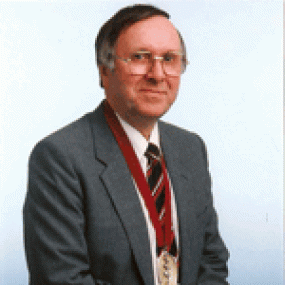Obituary - Dr John Barker

1924 to 2011
Dr John Barker, formerly senior consultant in neuroanaesthesia at the Institute of Neurological Sciences, Glasgow, died on 4 February 2011. He was 86.
Dr Barker was born (5 April 1924) in Glasgow, and educated at Whitehill Senior Secondary School. Admitted to the University of Glasgow he interrupted his studies to serve in the Royal Navy during the latter part of the Second World War. On demobilisation he completed his undergraduate course and graduated MB ChB in 1950. Following resident appointments, he entered general practice in Old Kilpatrick and then, later, in London. Attracted to the emerging specialty of anaesthesia he returned to Scotland, commenced and completed, his training at Glasgow Royal Infirmary becoming, as required, a Fellow of the Faculty of Anaesthetists of the Royal College of Surgeons of England. Appointed, initially, as consultant anaesthetist in Paisley he, later, moved to Killearn Hospital (at that time the Regional Neurosurgical Centre) where he became the first full-time consultant neuroanaesthetist in the West of Scotland (and one of the earliest in the UK). In 1969/1970 he moved with his colleagues to the newly-built Institute of Neurological Sciences in Glasgow - where he would remain until retirement in 1989.
Dr Barker made many significant contributions to his chosen sub-specialty. He embraced the introduction of specific monitoring techniques during neurosurgical procedures such that they became routine in that environment. He welcomed, and promoted, the discipline of critical care - particularly as applied to patients with head injury and those requiring intensive postoperative management, Towards the end of his time at the Institute he popularised the technique of total intravenous anaesthesia carefully assessing its possible usefulness in this group of patients. Academically, he was influential in promoting the status of neuroanaesthesia through his research (in collaboration with Professors Jennett, McDowall and Fitch) into the effects of anaesthesia and anaesthetic agents on cerebral blood flow and intracranial pressure. He travelled widely,in a professional capacity, in Europe, Asia and North America, and spent a year as Visiting Associate Professor at the University of Western Ontario, London, Canada.
He served a term as Secretary of the Neuroanaesthetists Travelling Club, and was also Secretary and, later, President of the Glasgow and West of Scotland Society of Anaesthetists.
Following 'retirement' Dr Barker spent 15 month as consultant anaesthetist at Ibn al Bitar Hospital in Baghdad during which time he was able to pursue his interest in Old Testament history and archaeology. When Kuwait was invaded by Iraq he was 'detained' (in Iraq) - until released just prior to the First Gulf War. On his return to Scotland he was able to participate in his many other interests: gardening, skiing, music and cycling (taking part in two sponsored cycle rides on behalf of the Nazareth Hospital (from Dan to Beer-Sheba in 1992, and from Galilee over Jordan to the Red Sea in 1996).
He is survived by his wife, their four children and six grandchildren.
William Fitch
